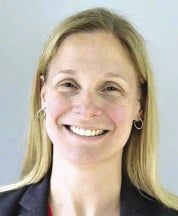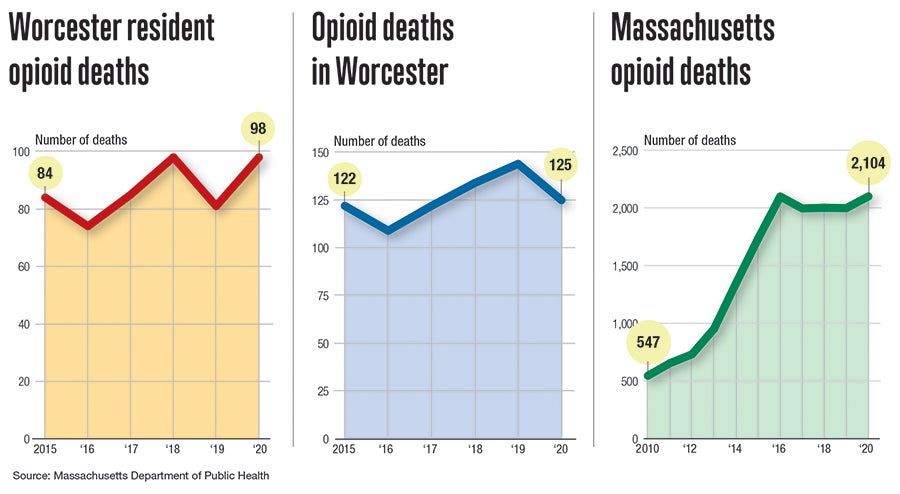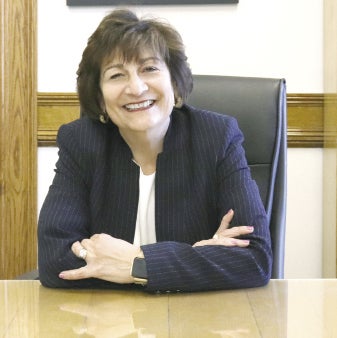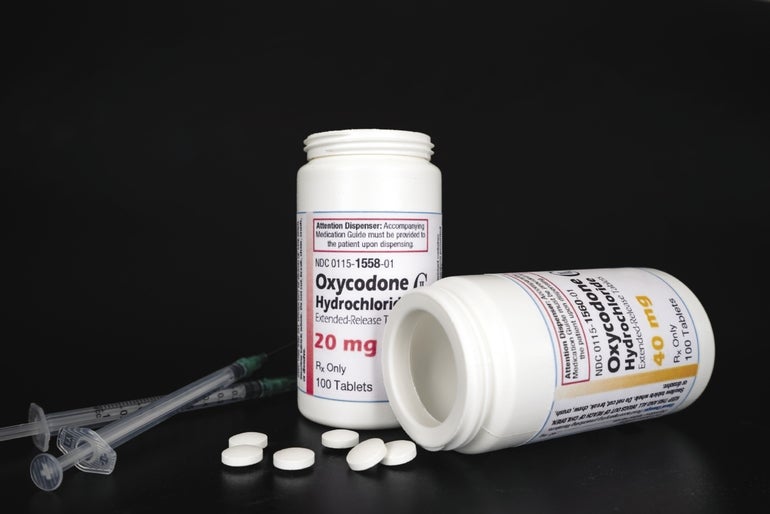The city of Worcester and its healthcare providers embraced novel approaches to handle Massachusetts’ other health crisis in a year where the coronavirus pandemic took center stage.
Get Instant Access to This Article
Subscribe to Worcester Business Journal and get immediate access to all of our subscriber-only content and much more.
- Critical Central Massachusetts business news updated daily.
- Immediate access to all subscriber-only content on our website.
- Bi-weekly print or digital editions of our award-winning publication.
- Special bonus issues like the WBJ Book of Lists.
- Exclusive ticket prize draws for our in-person events.
Click here to purchase a paywall bypass link for this article.
The city of Worcester and its healthcare providers embraced novel approaches to handle Massachusetts’ other health crisis in a year where the coronavirus pandemic took center stage.
Opioid deaths across the state rose 5% in 2020, but fell 13% in the city of Worcester, according to a report released by the Massachusetts Department of Public Health on May 12.

There were 125 overdose deaths in Worcester in 2020 compared to 144 in 2019. However, people from Worcester who died of overdose rose 21% from 81 to 98.
One treatment development of the pandemic was the rapid advancement of telehealth services. Dr. Heidi Ginter, chief medical officer of the Massachusetts sites of Recovery Centers of America in Westminster and Danvers, said telehealth allowed more access for outcare patients. RCA is likely to continue telehealth options going forward.
“One of the reasons is people have become really accustomed to it,” Ginter said. “It’s more comfortable. It’s more normative. The other thing it allows is for those individuals who don’t have access to good transportation or who don’t have access to good childcare, wherever you are, you can log in and get the care that you need. So you don’t have to have a car, and you don’t have to have a babysitter.”
The Recovery Centers of America has a 24-hour helpline for people, 1-800-RECOVERY, available for people seeking help.

Targeting underserved populations
However, the pandemic exposed exacerbated equality issues.
According to data from the Massachusetts Department of Public Health, death rates for white people fell while rates for Black or Hispanic people went up.

“COVID both mitigated and exacerbated different access issues that a lot of people were suddenly thrust into a telemedicine environment pretty quickly and that helped to alleviate some barriers related to transportation,” Dr. Kavita Babu, chief opioid officer for UMass Memorial Health in Worcester, said. “It certainly exacerbated the digital divide. That’s not an ideal platform for people who, for example, don’t have smartphones or don’t have consistent Wi-Fi service.”
The city is responding with targeted actions. Dr. Matilde Castiel, commissioner of health & human services for the City of Worcester, said the city is targeting at-risk populations by building relationships with those communities.

“We started a couple of years ago, a re-entry task force, which is really looking at people coming out of jail,” Castiel said. “How do we provide services for people coming out of jail? The majority of people, close to 90% of the people who are at our county jail, are there because of addiction and issues also related to addiction.”
The city has a wide variety of programs Castiel touted for their effectiveness in saving lives, such as educational programs, webinars and mental health programs.
Stocking up with Narcan
One difference-maker in Worcester is the availability of Narcan, a nasal spray counteracting the effects of an overdose.
Pharmacies in Massachusetts have a standing order for Narcan. People are able to go to licensed pharmacies and purchase Narcan on request without the need of a doctor’s prescription.
In Worcester, emergency medical services technicians carry Narcan, allowing first responders to provide care during critical moments.
“That’s a really exciting program, especially because it allows us to get life-saving medication into the hands of patients who might refuse treatment or refuse transport to the hospital,” Babu said. “That shows the desire of our prehospital teams to save lives and intervene in the overdose epidemic.”
Finding people where they are
The city is looking at ways to provide care to people where they are, regardless of access to a computer.
The city has partnered with UMass Medical to create a harm-reduction van.
The program will have an RV act as a mobile treatment center.
Healthcare providers will go around offering treatments and checkups to people unable to access telemedicine services at shelters or homeless encampments.
“By providing people and boots on the ground where they were needed, we moved many of those barriers in terms of transportation, scheduling an appointment, having reliable access to a smartphone or an iPad, things like that,” Babu said.
The RV housing the treatment center has yet to be delivered. COVID-related shipping delays have caused it to take longer than expected to arrive.
Despite this, Babu said the program has been up and running for three weeks. Rather than wait for the RV, UMass Memorial’s team of doctors and physician assistants has been going out with backpacks to begin the program.
“We have the personnel,” Babu said. “We have an awesome team of people who are really dedicated to this patient population and to addiction treatment. We’re not going to wait.”

